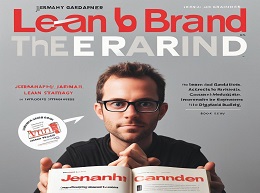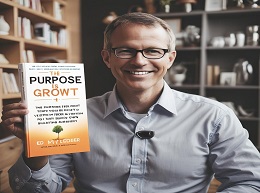The Lean Brand

"The Lean Brand" by Jeremiah Gardner introduces readers to the concept of lean branding a methodology that emphasizes experimentation, iteration, and customer-centricity in building and evolving brands. This review delves into the key principles of the book, accompanied by compelling examples and practical advice to help businesses reimagine their brand strategies in the digital age.
Understanding Lean Branding:
Gardner defines lean branding as an iterative approach to brand development that focuses on validating assumptions, delivering value to customers, and adapting to market feedback.
Example:
Zappos embraced lean principles by initially selling shoes online without holding inventory, validating customer demand before investing heavily in inventory and infrastructure.
Customer-Centric Branding:
The book emphasizes the importance of putting customers at the center of brand development, understanding their needs, preferences, and behaviors.
Example:
Airbnb's success is attributed to its deep understanding of travelers' desires for unique and authentic experiences, reflected in its brand messaging and community-driven approach.
Brand Experimentation and Iteration:
"The Lean Brand" advocates for a culture of experimentation and rapid iteration, where brands continuously test hypotheses and refine their strategies based on real-world feedback.
Example:
Coca-Cola's "Share a Coke" campaign experimented with personalized packaging, allowing customers to find their names or personalized messages on Coke bottles, driving engagement and brand affinity.
Minimum Viable Brand (MVB):
Gardner introduces the concept of the Minimum Viable Brand (MVB), a stripped-down version of the brand that enables rapid testing and learning before scaling.
Example:
Dollar Shave Club launched with a simple, humorous video that communicated its value proposition and brand personality, quickly gaining traction and validating its business model.
Brand Agility in Action:
The book showcases examples of brands that have embraced agility and experimentation to stay relevant and competitive in fast-changing markets.
Example:
LEGO transformed its brand by listening to customer feedback, embracing digital channels, and co-creating products with its community, revitalizing its brand and driving growth.
"The Lean Brand" offers invaluable insights into reimagining brand strategies for the digital age, advocating for agility, customer-centricity, and experimentation. By adopting lean principles and prioritizing continuous learning and adaptation, businesses can build resilient brands that thrive in today's dynamic marketplace.













